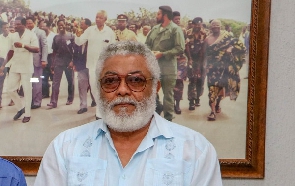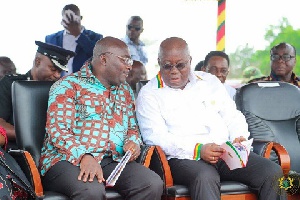- Home - News
- TWI News | TV
- Polls
- Year In Review
- News Archive
- Crime & Punishment
- Politics
- Regional
- Editorial
- Health
- Ghanaians Abroad
- Tabloid
- Africa
- Religion
- Election 2020
- Coronavirus
- News Videos | TV
- Photo Archives
- News Headlines
- Press Release
General News of Friday, 8 February 2002
Source:
Blair to address Parliament today
British Prime Minister, Tony Blair will address Parliament at 10:15am today as part of activities of his three-day visit to Ghana.
Mr Peter Ala Adjetey, Speaker of Parliament, in announcing this in a statement on Thursday said the visit would enable the parliamentarians to interact with the Prime Minister, who is also a member of the House of Commons (British Parliament).
A diplomatic source said the central theme for Mr Blair's visit would be conflict prevention and peace keeping in addition to trade and development. It said Britain appreciated the socio-economic conditions of under-development in Africa and would not fan conflicts in Africa. Conflicts in Africa were equally as reprehensible as terrorism, which Britain had vowed to fight.
Parliamentary sources in extending their heartfelt-welcome to Mr Blair said it was significant that Britain had realised that Africa needed the collaborative effort of the developed world to tackle her deprivation. Mr Blair speaking in a pre-departure interview with the Times of London was quoted as saying the developed world had a duty to act to help ease global poverty.
The Sources said it was well that Britain, a Colonial Master had realised that "the developed world runs the risk of a repeat of the situation in Afghanistan" whereas previously the cries of Africa and the under-developed world would have blighted "the civilised world".
They said they expected Mr Blair to address the issues of the third world not only considering them as nations to be exploited to enrich the already rich Western countries.
The fact that the trip would afford him the opportunity to familiarise himself with the cocoa industry as part of UK's interest in trade globalisation should let him apprise himself with Ghana's effort in securing good price for the commodity. It noted that Britain would listen and address the issues of unfair trade systems that perpetually put the developing world in a disadvantageous position.










